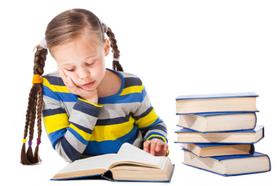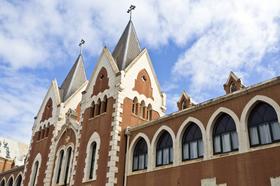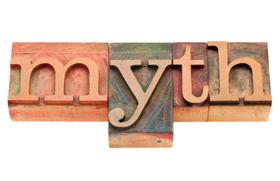What are private schools like anyway? Even if you're starting your private school research, there's a good chance you already have an impression of private schools. Perhaps you have read The Catcher in the Rye or A Separate Peace. Or maybe you saw Dead Poets Society or School Ties. These stories, while entertaining, offer a picture of private schools that is quite different from what you will find today.
Just as universities and colleges in the United States have evolved in the past several decades, private schools have also evolved. But unfortunately, while the perception of private schools is changing, there are still some lingering myths that can make you mistakenly think that you wouldn't fit in at boarding school:
Myth 1: You must be very wealthy to go to a private school.
Approximately a third of all private school students receive financial aid. Financial aid grants can represent a significant portion of tuition, depending on the school and your family's situation. Students now increasingly come from public schools and a wider range of family income levels. In general, boarding schools do their best to make their programs accessible to your family through financial aid grants, loan programs, and merit awards/scholarships. In the past ten years, the emergence of K-12 private school loans has also made boarding school education more accessible.
This video offers a look at the German International School in Washington, DC.
Today's families that send their kids to private school represent a broader demographic - geographically, socio-economically, and ethnically (see "Myth 2" below). However, what hasn't changed is the rigorous academic approach and emphasis on students' personal growth.
Myth 2: Diversity is rare in a private school.
More than a quarter of all private school students are students of color or international. Private schools are generally more diverse than public schools. They actively seek diversity and draw from many geographic areas. In contrast, local schooling options are dependent on neighborhood living patterns where populations tend to concentrate along ethnic or socio-economic lines. Also, private schools create more meaningful opportunities for different students to interact with one another. Students are constantly surrounded by a diverse population, whether in the classrooms, on playing fields, or in an extracurricular activity.
Myth 3: Kids don't have fun in a private school.
Discipline and rules are part of life at any private school. But, depending on your impression of private schools, you might be surprised to learn that they can also be a lot of fun. Most will tell you the same thing when you talk to students or alumni today. The school is an environment that's conducive to making incredible friends and having fun in the process.
This video offers a look at The Episcopal School of Dallas.
Keep in mind that while solid academics are a key focus for boarding schools, they also strive to foster independence in students. Private schools give you choices in how you spend your time and what activities to pursue to determine your experience at school and grow as a person, not just academically. This process - of growth in independence, meeting new people, and pursuing your interests - is often fun and very rewarding.
Myth 4: Private school is for kids who are having trouble at home or in public school.
There are two types of private schools - college-preparatory schools and special needs schools. Unfortunately, the two are sometimes confused and can cause misperceptions that private schools are only for kids who are having trouble at home or school.
College-preparatory schools cater to motivated students who are looking to explore new opportunities. They are the ideal choice for students who are already doing generally well academically. These schools are not appropriate choices for students with special needs. The key objective of these schools is to prepare students for college through rigorous academics. You will find various college-preparatory options ranging from the familiar Advanced Placement or AP curriculum to the International Baccalaureate curriculum to the progressive approach.
Myth 5: Private schools are difficult to get into.
The academic standards are high, but that's only one thing that schools look for as they review their applicant files. Applicants who demonstrate the ability to do academic work by scoring well on the standardized admissions test will be acceptable. However, admissions staffers also want to know who each applicant is. Therefore, personality, interests, and activities are essential components of each applicant's file. One of the prerequisites for admission to a private school is visiting the school. The school wants to meet each applicant just as much as the applicants want to visit the school and see what it's like.
Keep an open mind about your impressions of private schools. The best way to learn more about them is to visit one. While it's true that you can find out a lot about schools from their social media sites, you can learn so much more about schools by simply being on campus and talking to current students about their experiences.
More About Choosing Schools
Choosing A Private School | Choosing A School: 5 Must-Haves
Choosing A School: 10 Things That Matter To Parents | Admissions 101
Questions? Contact us on Facebook. @privateschoolreview
























